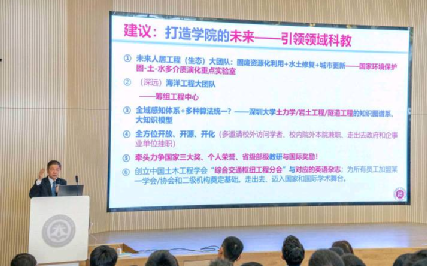On March 19, 2025, our institute convened a new semester work conference for all faculty and staff in the A431 auditorium of Zhi Gong Building. Attending the conference were Academician Chen Xiangsheng, the dean of the institute; Party Committee Secretary Zuo Yingzi; Vice Deans Zou Liang, Yang Lei, and Bao Xiaohua; Deputy Party Committee Secretary Chen Bixia; Vice Dean Guo Jun; and all faculty and staff members. Executive Dean Long Wujian presided over the meeting.
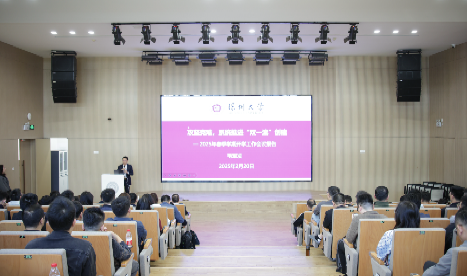
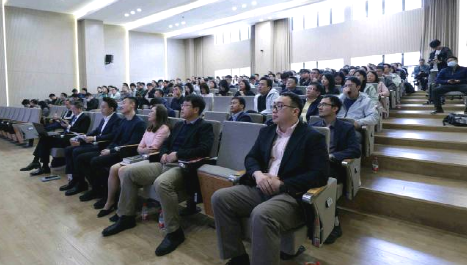
At the beginning of the meeting, Party Committee Secretary Zuo Yingzi and Executive Dean Long Wujian conveyed the spirit of the university's new semester work conference. Secretary Zuo communicated the key points of Party Committee Secretary Li Qingquan's speech at the university's new semester work conference, emphasizing the need to strengthen Party building and anti-corruption efforts, advance the "Integration and Dual Excellence" initiative, continuously improve the compliance system, innovate faculty hiring mechanisms, focus on new trends in artificial intelligence development, optimize the disciplinary layout, and strategically plan the "15th Five-Year" plan with a goal-oriented approach to promote high-quality development of the university's endeavors.
Executive Dean Long Wujian conveyed the spirit of President Mao Junfa's speech at the university's new semester work conference. He noted that 2025 is a crucial year for the university to achieve its development goals in the "14th Five-Year" plan and to make a sprint for selection into the "Double First-Class" university construction initiative, likening it to a decisive battle. He called on all faculty and staff to stay true to their original aspirations, fulfill their missions, take up the banner of charge, and contribute to the construction of Shenzhen University as a world-class comprehensive university.
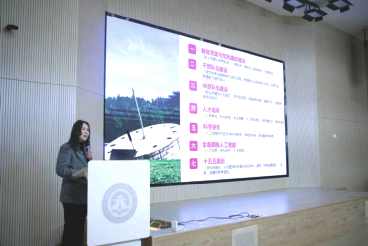
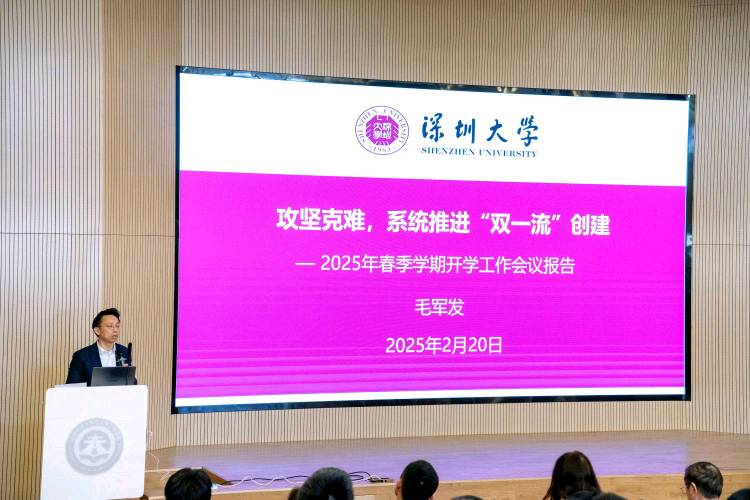
Subsequently, the college leaders successively reported on the new semester work plans.
Secretary Zuo Yingzi focused on three sets of key terms—"Plan for Development and Seek Breakthroughs," "Strengthen Compliance and Guard Against Risks," and "Optimize Services and Unite People"—to address how the college Party committee can empower the discipline evaluation and promote the high-quality development of the college at this critical juncture of striving for "Double First-Class" status. Executive Dean Long Wujian analyzed the 2025 work objectives and expected outcomes from four aspects: administrative work, laboratory center work, international cooperation, and discipline construction. He emphasized that all faculty and staff must unite and make every effort to achieve the "Double First-Class" goals.
Vice Dean Zou Liang, focusing on the overall situation and existing problems of graduate and postdoctoral work, pointed out the need to implement the new degree law, revise training programs, and encourage educational innovation and reform. Deputy Party Committee Secretary Chen Bixia, addressing student affairs, discipline inspection, trade union work, and alumni work, laid out the key tasks for 2025: to advance student Party building and ideological and political education in communities to improve talent cultivation, strengthen integrity and anti-corruption education and supervision mechanisms for faculty and staff, optimize trade union management and carry out "Self-Care" health activities, and unite alumni to support the college's development.
Vice Dean Yang Lei analyzed the key tasks of this semester from undergraduate enrollment, training, and major adjustment, noting that the college should actively embrace technological changes and integrate cutting-edge content such as informatization and artificial intelligence into every course. Vice Dean Bao Xiaohua summarized the significant achievements in faculty team building, talent introduction, and cultivation in 2024, and pointed out that in 2025, the college will continue to cultivate and attract high-level talents to form a high-quality, efficient, and capable teaching team. Vice Dean Guo Jun, starting from specific work requirements such as fund application and scientific research achievement recognition and transformation, encouraged teachers to actively apply for various scientific research projects. He emphasized the need to improve the mechanism for recognizing and transforming scientific research achievements, strengthen policy training, and ensure that research outcomes can be promptly applied in practice.
As Vice Dean Ding Zhikun was unable to attend the meeting due to other commitments, Vice Dean Guo Jun conveyed the work plans for the scientific research experimental platform, logistics management, and bidding and tendering on his behalf. He stressed that in 2025, the college will actively hold national-level scientific research platform seminars, enhance external publicity, and showcase the achievements in the construction of national-level scientific research platforms.

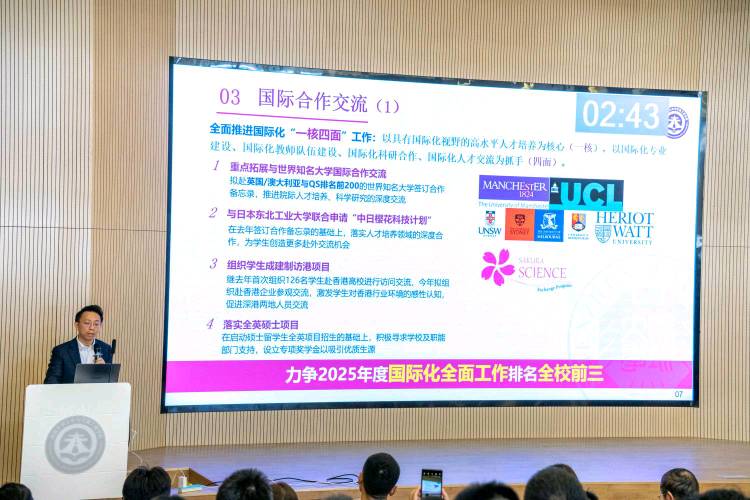

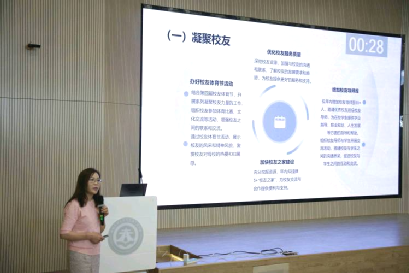
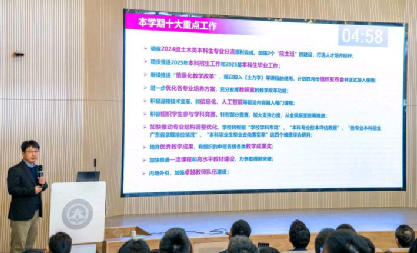

Subsequently, Party Committee Secretary Zuo Yingzi delivered a special report on Party conduct, integrity building, and professional ethics. By introducing typical cases of violations of professional ethics and integrity, Secretary Zuo profoundly analyzed the negative impacts of these issues on the reputation of the involved colleges and universities, the career development of teachers, and the growth of students. She emphasized that as educators, it is imperative to always uphold the ethical bottom line of the profession and establish good professional ethics. She called on all faculty and staff to learn from these examples, to be mindful of the consequences, to exercise restraint in their words and actions, and to act with integrity!

At the end of the meeting, Academician Chen Xiangsheng, the dean of our institute, spoke on the development of civil engineering. He pointed out that civil engineering has now stepped into the threshold of informatization, digital intelligence, and intelligentization. Digital intelligent civil engineering is a giant system that should be rethought from a systemic and holistic perspective, especially in terms of intelligent construction. Academician Chen emphasized the need to vigorously advance the reform and innovation of talent cultivation models. He called for the courage to revolutionize oneself and break through the shackles of traditional teaching models. He advocated for a multi-dimensional and three-dimensional approach to student cultivation, shifting from primarily imparting knowledge to a teaching model characterized by philosophical thinking and a focus on kindness and benevolence. With this new model, we aim to cultivate and create "Future Civil Engineering+" intelligent composite talents with a sense of national responsibility, scientific spirit, humanistic sentiment, philosophical thinking, innovative ability, international vision, and interdisciplinary background—namely, outstanding engineers, managers, and scientists!

